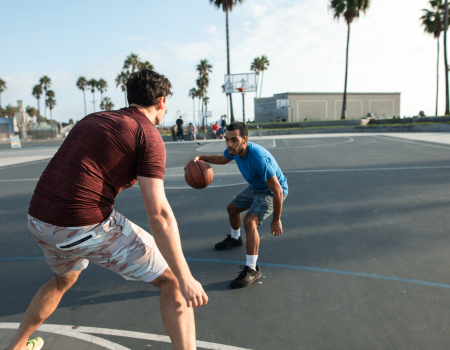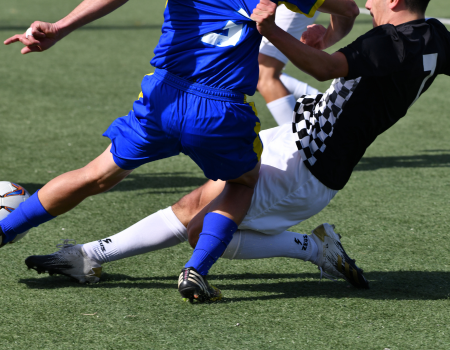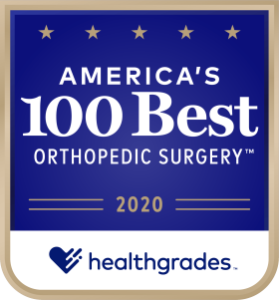 Engaging in sports is a fantastic way to maintain a healthy lifestyle and foster personal growth. However, the risk of sports-related injuries is a reality that every athlete faces. To optimize performance and minimize injury risks, incorporating orthopedic care into an athlete’s routine is crucial. In this blog post, we’ll explore the significance of orthopedic care in preventing sports injuries and keeping athletes on the field.
Engaging in sports is a fantastic way to maintain a healthy lifestyle and foster personal growth. However, the risk of sports-related injuries is a reality that every athlete faces. To optimize performance and minimize injury risks, incorporating orthopedic care into an athlete’s routine is crucial. In this blog post, we’ll explore the significance of orthopedic care in preventing sports injuries and keeping athletes on the field.
- Comprehensive Injury Assessments:
Orthopedic specialists are equipped with the expertise to conduct thorough assessments of an athlete’s musculoskeletal system. Through physical examinations, imaging, and diagnostic tests, they can identify potential issues before they escalate into serious injuries.
- Personalized Conditioning Programs:
Orthopedic care involves tailoring conditioning programs to an athlete’s specific needs and sports requirements. These programs focus on strengthening the muscles, improving flexibility, and enhancing overall fitness, creating a robust foundation for injury prevention.
- Technique Analysis:
Orthopedic professionals can analyze an athlete’s techniques and biomechanics to identify any irregularities that may contribute to injury risks. By refining movement patterns and suggesting adjustments, orthopedic care helps athletes perform optimally while reducing stress on vulnerable areas.
- Injury Prevention Education:
Orthopedic care includes educating athletes about the importance of proper warm-up techniques, cool-down exercises, and stretching routines. This knowledge empowers athletes to take proactive measures in preventing injuries during training and competitions.
-
 Rehabilitation Services:
Rehabilitation Services:
In the unfortunate event of an injury, orthopedic care plays a crucial role in the rehabilitation process. Specialists design rehabilitation programs tailored to the specific injury, ensuring a safe and efficient recovery that minimizes the risk of re-injury.
- Nutritional Guidance:
Orthopedic professionals understand the integral role nutrition plays in an athlete’s overall health and injury prevention. Guidance on maintaining a well-balanced diet helps athletes build strong bones and tissues, fostering resilience against injuries.
- Orthopedic Gear and Equipment Recommendations:
Appropriate gear and equipment significantly contribute to injury prevention. Orthopedic specialists can recommend suitable footwear, braces, or other protective equipment based on an athlete’s sport, reducing the risk of trauma and enhancing performance.
- Rest and Recovery Strategies:
Adequate rest and recovery are essential components of injury prevention. Orthopedic care emphasizes the importance of incorporating rest days into training schedules and adopting recovery strategies such as massage, physiotherapy, and sleep hygiene.
In the dynamic world of sports, prioritizing orthopedic care is not just about treating injuries but also proactively preventing them. Athletes who integrate orthopedic principles into their training routines are better equipped to perform at their best while safeguarding their long-term health and well-being. By embracing a holistic approach to orthopedic care, athletes can stay in the game, pursuing their passion with reduced injury risks and improved overall performance.
This blog provides general information and discussions about health and related subjects. The information and other content provided in this blog, website or in any linked materials are not intended and should not be considered, or used as a substitute for, medical advice, diagnosis or treatment. This blog does not constitute the practice of any medical, nursing or other professional health care advice, diagnosis or treatment. We cannot diagnose conditions, provide second opinions or make specific treatment recommendations through this blog or website.
If you or any other person has a medical concern, you should consult with your health care provider or seek other professional medical treatment immediately. Never disregard professional medical advice or delay in seeking it because of something that you have read on this blog, website or in any linked materials. If you are experiencing a medical emergency, please call 911 or call for emergency medical help on the nearest telephone immediately.




